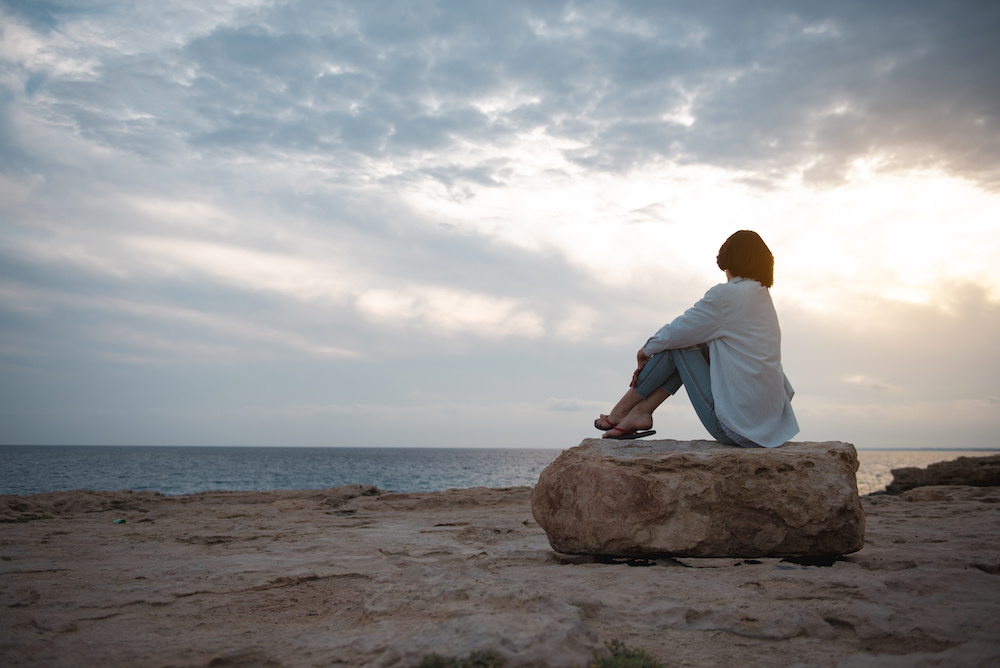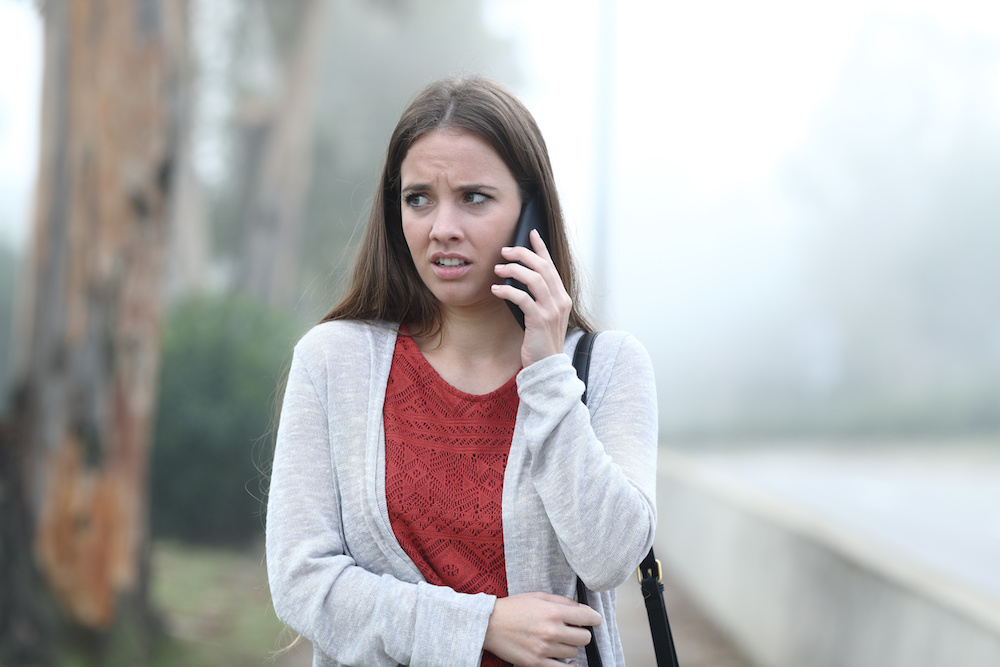
June 30, 2020
Turning Toward: How to Tap Into a Proven Mindfulness Skill to Make Wise Choices Through Fear
Recently, a friend called me to get my opinion about a social-distancing faux paus. She had gone to a neighbor’s small backyard gathering with a mask on, her own plates and cutlery as well as food.
But when she arrived, she noticed that while people seemed reasonably spaced apart, no one else was wearing masks and all we’re sharing plates of food and serving utensils. Was this safe she wondered?
Underneath my friend’s question and confusion, was the shadow of fear. The global pandemic has brought fear to the forefront for all of us in both small and large measures.
As the country re-opens and uncertainty as well as rates of new COVID-19 cases rise and fall, fear will likely be an intimate companion for many of us. And that’s not entirely a bad thing.
The Origin of Fear
Fear is universal and primal. In its purest form, it’s protective. When we feel fear, the body releases a cascade of hormones that make our hearts race, our breathing increase and even our pupils dilate. The body’s response to fear prepares us to flee, fight or freeze in the face of danger.
In our daily life, fear is what rescues us from running a red light, walking down a dark alley at night and keeping our mask on in the grocery store.
“Fearlessness is ignorance, and it’s a lack of respect,” says legendary big wave surfer Laird Hamilton in “The Wave,” by Susan Casey.
Human beings are actually meant to be afraid of the 80 to 100 foot waves that Hamilton somehow manages to surf despite his fear of them. It’s also normal to fear the unknown of a pandemic.
When drafting maps, ancient cartographers drew snarling monsters at the edges of known geographic boundaries to signify that the unknown was indeed a frightening place.
Still, it’s worth sorting out the difference between the kind of fear that protects versus the kind of fear that limits us. Even in the midst of so much uncertainty our fear can become outsized, keeping us from new challenges or even socializing with friends and family in a safe way.

Identifying “Helpful” Fear Versus “Limiting” Fear
We can only know the difference between wholesome and limiting fear when we’re brave enough to feel fear in all of its gut wrenching discomfort. And here’s where mindfulness can be a trustworthy friend.
Whenever fear arises, we can allow it to momentarily stop us in our tracks and give it our full, embodied attention. Does fear grip us tightly, making us clench our jaw, or does it send a quiet shiver through our spine. Does it yell: “Don’t do it.” Or does whisper insidious doubts in our ears? When fear appears do we retreat, putting aside our bold plans, or do we forge ahead with white knuckles.
Feeling anxious? You’re not alone. Learn how to better manage your feelings of anxiety with mindfulness exercises.7 Days of Managing Anxiety on-demand content!
Next time fear appears, apply a bit of mindfulness:
- Stop, take a breath and soften your belly to give your fear more room to move through you.
- Notice whether your mental chatter is a hyped up soundtrack of self-criticism and insecurity or if it sounds as reasonable as an accountant. (Limiting fear likes to tell the same panicky stories over and over again.)
- Feel the sensations that accompany your fear and offer yourself support by placing your hand on your heart and saying to yourself: “I allow this fear to be here.”
Feeling stressed? Subscribe to our Stress Less, Live More long-form programs for ways to start enhancing your quality of life!
What Fear Can Teach Us
The reward of becoming more intimate with fear is that we begin to know it not as a monolithic feeling, but as something that’s made up of movable parts – sensations, thoughts and even sights and sounds. Broken down, fear becomes more manageable. And we can more readily discern whether its intention is to guide us to safety or to keep us too safely in place.
Sometimes, we need close friends or the help of a wise counselor to become more mindful of our fear.
After talking with my friend about the backyard barbecue she attended, she realized that her discomfort told her she didn’t feel safe. Next time, she said she would either skip the party or ask her neighbors what their rules for social distancing are, before she joins in another gathering.
When you stop, listen and feel your fear with an attitude of allowance it often tells you exactly what you need to know.
Start your journey into more mindful living with our Mindful Daily sessions!
Written by Kelly Barron, eM Life Teacher